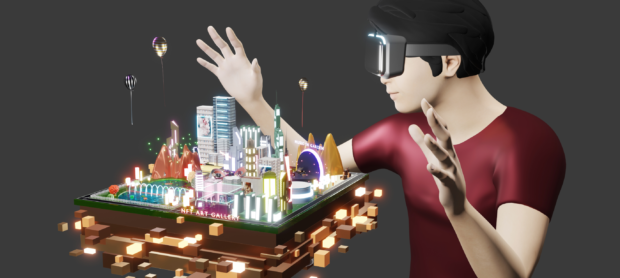Every player has had the ambition of producing their own game at some point, and a game designer’s job is crucial to making that dream come true. A game designer is someone who invents the game and all of its components, from the lore to the economics, despite the fact that many people may think of a game designer as someone who sketches or builds models. To make the game come to life in a way that is interesting and pleasant for players, game designers frequently collaborate in teams with other experts, including artists, programmers, and writers.
The creation of the game’s lore is one of the designer’s most important duties. To do this, a rich world with its own history, culture, and mythology must be created. Players feel more immersed in the game environment because to the mythology, which significantly improves the enjoyment of the activity. In addition, game designers are in charge of coming up with tasks and quests that players may complete while making sure they are interesting and well-balanced.
Another crucial component of game design is the mechanics. These are the systems and laws that control how the game is played. How players level up, how combat functions, and how treasure is allocated are all determined by game designers. To make sure that a game is entertaining and demanding while still being fair and balanced, the game’s mechanics must be carefully thought out. The game’s economics must also be taken into account by the designer, who must create the currency system and decide how much money players will receive for completing objectives and killing foes. In order for players to advance through the game without getting irritated or trapped, the economy must be balanced.
Also, game designers are in charge of developing the concept and bringing it to life in a way that is both fascinating and pleasant for players. Game design is a crucial component of the gaming business. To guarantee that the game is well-designed and balanced, a game designer must take into account every part of the game, from the mythology and objectives to the mechanics and economics. The rewards may be enormous, and the delight of seeing others enjoy the game you developed is unmatched. Yet, creating a game may require a lot of hard work, expertise, and devotion.
Specializations in Game Design: Exploring the Different Branches of Game Design
A variety of distinct specialties are involved in the complicated subject of game creation. Game economy design, technical game design, gameplay design, narrative design, game feel design, mathematician, and generalist are a few of the areas of game design that are often addressed by various professionals.
The creation and balancing of the game’s economic systems, including its currency, item costs, and reward structures, is the responsibility of the game economy designers. The user interface, networking capabilities, and platform-specific needs are only a few examples of the technical aspects that technical game designers concentrate on creating.


The mechanics of the game, such as the combat, exploration, and advancement systems, are designed by gameplay designers. The narrative designers are in charge of coming up with the game’s plot, characters, dialogue, and general narrative framework. The whole aesthetic of the game, including its graphic style, sound design, and general tone, is a primary concern for game feel designers.
Along with these specialist positions, mathematicians who concentrate on creating and balancing game mechanics are also a part of the game design industry, as are generalists who are well-versed in a variety of topics and can step in when necessary.
It’s crucial to remember that game design cannot be completed by a single person for large games like AAA releases like GTA 5. Within the game design division, there are clear divisions of labor, with several individuals in charge of various facets of the game’s creation. This guarantees that each professional may concentrate on their area of specialization and create a high-quality, well-designed, and balanced product.
Game design is a broad discipline with a variety of specialities, each with a distinct purpose and set of duties. It is feasible to produce high-quality games that are well-designed, balanced, and engaging for players with rigorous separation and defined limits within the game design department.
Dispelling the Myth: Do Game Designers Need to Write Code?
The requirement for a game designer to write code is uncommon, contrary to popular belief, which holds that all game designers must be able to write code. Usually, it’s only required for extremely modest projects or in little independent studios. Game designers frequently collaborate with developers, who are in charge of writing the code for the game’s mechanics and systems.
Even though they could have some coding experience, game designers often do not have the same degree of skill as a skilled developer. They instead concentrate on creating the game’s systems, mechanics, and overall player experience. This needs both a creative mind to develop fresh and interesting game mechanics and a thorough grasp of game design fundamentals, such as level design, game balance, and pace.
It’s also crucial to remember that game designers don’t necessarily need to possess a high degree of coding proficiency to succeed in their line of work. Like anybody can drive a car, professional drivers often have significantly higher levels of driving proficiency than ordinary individuals. Similarly to this, game designers may succeed in their positions by specializing in their field and working with other experts, like developers, to realize their imaginative dreams.
Having a rudimentary understanding of coding may be helpful for some game designers, but it is not necessary for the position. The art of creating entertaining games that pique players’ interest is the domain of game designers. They may assist in producing the next wave of inventive and captivating games for players all around the world by concentrating on their own skill set and working with other industry experts.
Expectations vs Reality: Working in the GameDev Industry
For those who enjoy games and wish to make a living from their passion, the game development sector has always been appealing. The reality of the day-to-day job required, however, frequently differs significantly from the expectations individuals have of working in the business.
Since they picture a job where they get to play video games all day long and only sometimes perform fascinating work, many individuals are attracted to the concept of working in game development. Also, some people could think that they will start off by working on well-known projects like Cyberpunk 2077.
The fact is that working in the game development field is comparable to working in any other IT field. Designing, creating, testing, and debugging games takes up the majority of the job and necessitates a high degree of technical expertise. Also, it’s typical for new workers to start their careers working on low-profile, unimportant projects that lack the glamour of high-profile games.
But, for people who are enthusiastic about games and are prepared to work hard to achieve, a career in game development may be very gratifying. Being a member of a team that makes a game come to life may be a very satisfying experience, even though the day-to-day labor may not always be as thrilling as people expect. Although it’s crucial to have reasonable expectations about the field and the required labor, individuals who are prepared to put in the time and effort can reap major dividends.

Behind the Scenes: The Complex Process of Creating In-Game Objects
Many individuals who are not active in the video game development business might believe that making video games is an enjoyable and simple procedure. Yet in fact, creating a game is a difficult, drawn-out process that needs a lot of attention to detail and a variety of specialized abilities.
For instance, the production team for a game like The Witcher 3 must work together and put in a lot of effort to create something as seemingly straightforward as a door. The mechanics of how the doors will function, including specifics like how they will open and close, who can open them, and under what conditions, must be initially determined by the game designer.
The developer will start coding the doors when the game designer has supplied this information. This requires employing 3D models made by a 3D artist and coupling the model’s motions to its circumstances. A testing crew will examine the behavior of the doors after they have been built in an effort to identify any flaws.
Even for something that appears to be straightforward like a door, all of this effort might take many days. It’s only one illustration of the amount of effort and cooperation needed to make a top-notch game. Although, though the labor might be difficult and perhaps boring, it is also extremely satisfying to watch the finished product come to life and be loved by gamers all around the world.
Breathtaking: The Rewarding Feeling of Creating Games That Players Love
The knowing that your work will be loved by thousands, if not millions, of players worldwide is one of the most satisfying elements of game production. It may be immensely gratifying and affirming when users of your game express satisfaction and favorable feedback.
It is simply beautiful to experience the thrill of building a unique environment that others desire to live in. It’s a sensation that only a select few other creative careers, like writing or filmmaking, can equal. The sense of fulfillment that comes from witnessing your idea materialize into a game that others can enjoy is absolutely exceptional.
Nevertheless, making a successful game is no simple task. It takes a lot of effort, commitment, and teamwork from several individuals with various backgrounds and skill sets. The sense of joy and success, though, may be enormous when everything comes together and the game is published. Given the difficulties, it is understandable why so many individuals decide to work in the video game creation sector. After all, their efforts may provide joy and happiness to countless players all over the world.

Conclusion
In conclusion, game design is a complicated and multidimensional discipline that requires a variety of skills, including arithmetic, generalist roles, gameplay design, narrative design, technological game design, and game feel design. Although some game designers may be required to write code at smaller independent firms, it is usually not a prerequisite for the position, and they frequently rely on developers to put their ideas into action.
Contrary to popular belief, creating video games is a difficult and demanding profession that frequently necessitates long hours and hard effort, particularly at the beginning of one’s career. Game designers take pleasure in the original worlds they build, and the rewards of making a game that people enjoy can be quite satisfying.
A team effort including many different specialists, each bringing its unique talents and knowledge to the project, is necessary to create a successful game. A breath-taking encounter that takes gamers to a whole different universe may be the outcome. Hence, even though the process of making a great game might be challenging, game designers who are passionate about their job find that the end result is frequently worthwhile.
If you have a passion for gaming and a great game idea that you want to turn into reality, Eventyr can help you bring your vision to life. We provide end-to-end game design and development services that are customized to your specific demands thanks to our highly qualified, experienced team. We collaborate with you at every stage, giving you regular updates and making sure that your game is created according to your exact demands. Don’t let your game idea remain only a concept. Your fantasy game might become a reality with the assistance of our staff. Contact us today for more information on how we can help you achieve your gaming goals.




